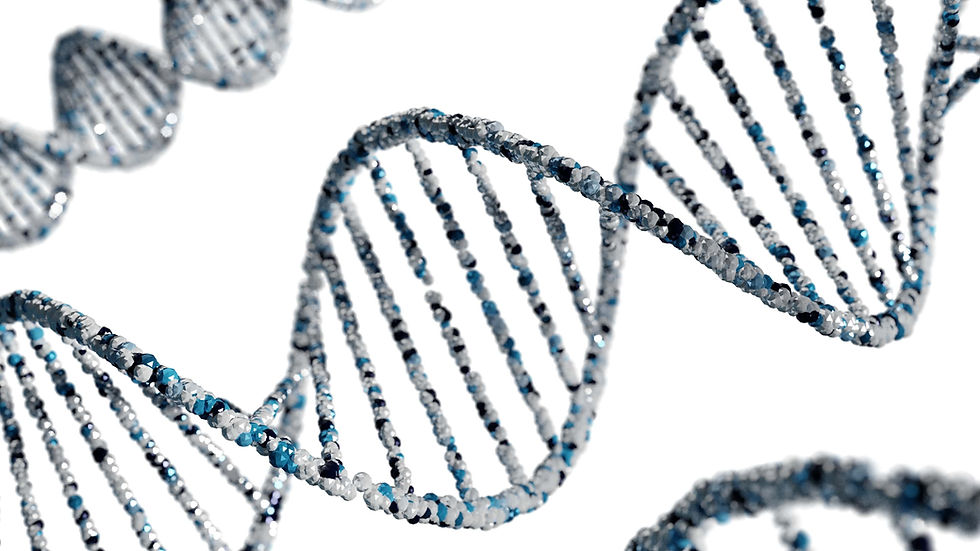Wonder if you should avoid soya foods? Probably not – let me explain
- Rebecca Hills

- Feb 29, 2024
- 4 min read
Updated: Aug 4, 2025
The soya bean (or soybean) is a versatile, protein-packed legume.
We're eating more soya beans in our diets as we, as a society, reduce our consumption of animal products, looking for alternative protein sources. Soya is found in tofu, tempeh, textured vegetable protein (TVP), and soya milk and yoghurt, often eaten as meat and dairy substitutes. It is also found in miso, edamame and soy sauce.
There is controversy around the health effects of soya beans, leaving people confused as to whether they should avoid it.
In this blog, I’ll explain the benefits of soya and soya products and explain the varied perspectives you may have come across.

Soya is great because it is a complete protein
Soya offers many health benefits, the most obvious one being its richness in protein.
Proteins are made from amino acids, of which there are 20 that the body needs for its cellular processes to function. The body can make 11 of these itself, but it must receive 9 from dietary sources – these 9 are called ‘essential amino acids’. When we don’t get all 9 essential amino acids from our diet most of our cellular processes can’t function, for example we can’t make new muscle.
Soya contains all 9 essential amino acids - we call this a 'complete protein'. Animal products also do, but the only other plant-based sources that do in notable amounts are buckwheat and quinoa. You can get sufficient amounts of all 9 from plants, though, just not from the same one – so, you need to combine rice with beans or lentils, for example. Not exactly impossible, but a bit harder work.
It has other important health benefits
Low in carbohydrates, soya beans are low on the glycemic index, meaning they don’t cause your blood sugars to fluctuate.
They are also a rich source of fibre, which is great for your digestion and to feed your microbiome.
They also are a source of vitamins and minerals such molybdenum, folate (vitamin B9), vitamin K1, manganese, and more.
Soya beans and hormone balance
Soya beans contain bioactive compounds including isoflavones (antioxidants).
Crucially, these are structurally similar to the female sex hormone oestrogen – as such they are called phytoestrogens (plant oestrogens). Because of their similarity with oestrogen, they bind to oestrogen receptors in the body, although much less strongly. This can be hugely beneficial in perimenopause, when oestrogen levels are fluctuating wildly and causing unpleasant symptoms such as hot flashes; isoflavones block the actions of fluctuating oestrogen, ‘smoothing out’ the actions of the receptor and alleviating symptoms.
Also, because of the actions of isoflavones on oestrogen receptors, there is evidence that soya reduces the risk of osteoporosis in menopausal women[1] and may reduce breast cancer risk.[2] There is also evidence it may have a protective effect against prostate cancer in men.[3]
So where does the controversy come from?
The controversy comes from the oestrogen-like effects of isoflavones in soya, mentioned above.
It was found in some laboratory tests on rodents that isoflavones may stimulate the growth of existing oestrogen-sensitive breast tumours. However, the consensus from further tests and population data is that there is no increase in risk: certainly, eating moderate amounts isoflavones in soya does not increase your risk of breast cancer, or any other type of cancer, and as mentioned before may even reduce the risk.
There was a train of thought that isoflavones in soya suppress the formation of thyroid hormones (which regulate growth and metabolism) by blocking the entry of iodine into the thyroid gland. However, this is now an outdated perspective, and a systematic review and meta-analysis (a study assessing the results of multiple clinical trials) published in 2019 concluded that soya products do not significantly impact our thyroid hormone levels.[4] (But, if you have a thyroid condition you do need to be wary of eating large amounts - say, eating every day - and if you are taking thyroid medication you should leave 4 hours between it and eating soya foods to ensure no interference with absorption. Ask your doctor about this.)
In conclusion
The soya bean is a versatile, protein-packed legume with a range of known health benefits.
While there has been controversy around isoflavones in soya beans exacerbating breast cancer in laboratory tests, the resounding consensus from is clinical studies is that this is not the case – and that they actually reduce the risk. Similarly, isoflavones don't significantly impact the formation of thyroid hormones for most people at moderate levels.
Of course, we are all different, though – and we all respond differently to different foods. If you need more information or personalised advice, please do get in touch.
If you’re feeling tired, stuck or frustrated with your changing body, you’re not alone – and you don’t have to figure it out by yourself.
Ready to understand what’s happening beneath the surface? Let’s talk – I’d love to help.
Disclaimer
The information and advice I provided here is of a general nature and should never replace individual health or medical advice provided by your doctor or other healthcare professional involved in your care.
References
[1] Taku K, et al. Soy isoflavones for osteoporosis: an evidence-based approach. Maturitas 2011 Dec;70(4):333-8. https://pubmed.ncbi.nlm.nih.gov/21958941/
[2] Boutas I, et al. Soy Isoflavones and Breast Cancer Risk: A Meta-analysis. In Vivo 2022 Mar-Apr;36(2):556-562. https://pubmed.ncbi.nlm.nih.gov/35241506/
[3] Zhang H-Y, et al. Isoflavones and Prostate Cancer: A Review of Some Critical Issues. Chin Med J (Engl) 2016 Feb 5;129(3):341-7. https://pubmed.ncbi.nlm.nih.gov/26831238/
[4] Otun J, et al. Systematic Review and Meta-analysis on the Effect of Soy on Thyroid Function. Sci Rep 2019;9(1):3964. https://www.ncbi.nlm.nih.gov/pmc/articles/PMC6408586/



Comments